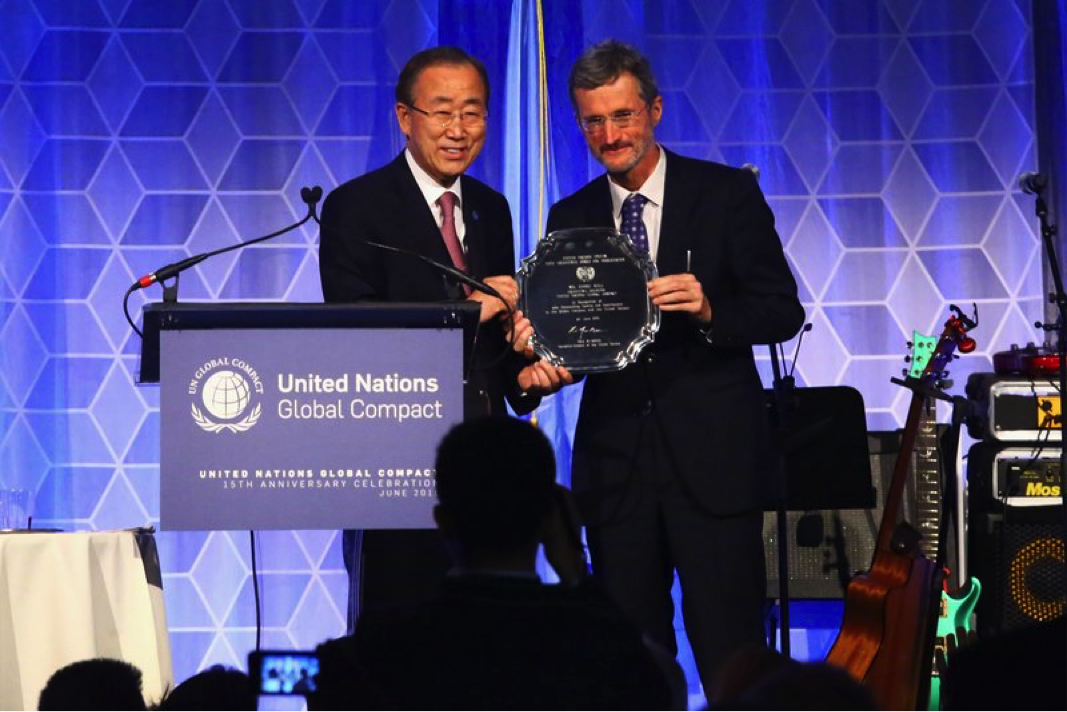They’re taking responsibility for their effect on people and the environment.
By Peter Lacy
View the original article here.
Evidence is mounting to show that the frequency and ferocity of extreme weather events is intensifying on a global scale. From severe droughts to powerful storms, we are living in an increasingly changeable, uncertain, and unpredictable world.
You don’t have to believe in climate change to accept this new reality. Resilience and the ability to manage challenges impacting us and our environment are of far greater importance to both business and society. Take the recent destructive hurricanes in the U.S. and the Caribbean, or the devastating floods in Nepal, India, and Bangladesh that represent a stark example of this new reality and of our growing vulnerability.
The role of business within this new reality is changing. Businesses have a critical role to play in helping solve the challenges we face through providing services and solutions that support society. In fact, businesses that do not adapt their models run the risk of eroding trust and ultimately, forfeiting customer loyalty.
Uncertainty in the world—from extreme events, to declining natural resources, to the changing skills required for employment—gives forward-thinking C-suite leaders an opportunity to adopt conscious capitalism through the incorporation of key elements like trust, collaboration, and stakeholder orientation into day-to-day business practices. And, as consumers increasingly demand that their brands reflect these objectives, companies that want to remain competitive will need to adapt by joining the circular economy.
At its most basic, the circular economy replaces the current wasteful linear economic model. Instead of organizations relying on finite resources, they conduct sustainable business. They find renewable resources. They remove waste at every stage, from sourcing to recycling—creating a business model that restores and regenerates, rather than depletes and throws away. They look at how products are made, who makes them, and where, as well as how those same products are recycled or sustainably retired. In fact, adopting a circular economy model is not simply about products and services but also the way we do business as companies. It presents an opportunity to move beyond simply meeting sustainability standards to a solution that transforms the current model of business and one that can create a competitive advantage for the leaders.
Leading companies are still innovating, but now in a way that takes responsibility for their effect on people, the environment, and the state of our world. And they have realized that—contrary to popular belief—doing so can still be profitable. Accenture research shows a potential $4.5 trillion reward for achieving sustainable businesses by 2030. And a number of companies are already making progress toward this aim.
Rubicon Global, for instance, a pioneering U.S.-based waste management company that connects customers directly with independent waste haulers, is disrupting the current waste disposal model to reduce waste to landfill, while passing on $1 million in savings to its clients across 80,000 locations.
Nike, another leading example, is rapidly transitioning toward its closed-loop vision with a bold target for FY2020: zero waste from contract footwear manufacturing going to landfill or incineration without energy recovery. To date, 70% of all Nike (NKE, -0.43%) footwear and apparel incorporates recycled materials, using 29 high-performance, closed-loop materials made from factory scraps.
As the circular economy and conscious capitalism take hold, the C-suite is taking note: 64% of UN Global Compact CEOs say sustainability issues play a central role in their strategic planning and business development, while 59% of CEOs report that their company can accurately quantify the business value created through their sustainability initiatives, up from 38% in 2013.
The circular economy, a critical aspect of this change, is already happening—so much so that the World Economic Forum Young Global Leaders, in collaboration with Accenture Strategy and in partnership with Fortune, recognize leaders through The Circulars, the world’s leading circular economy award program. The Circulars, presented each year at the World Economic Forum Annual Meeting in Davos, attracts entries from individuals and organizations across business and civil society, from global giants such as Unilever to innovative startups such as Method. A winner at The Circulars in 2015, Method was built on wholly circular and sustainable principles, ensuring 75% of its products are cradle-to-cradle certified, meaning they are designed and produced in a socially and environmentally responsible way. Method has eliminated countless toxic chemicals from homes by using natural inputs.
These are just a few examples of organizations driving value through circular economy innovation—there are many more. In a world in which conscious capitalism is becoming mainstream, the circular economy has a significant role to play in enabling businesses to make the transition whilst continuing to deliver value to customers, shareholders, and society. As more businesses take the lead, the opportunity that the circular economy represents will become a reality.

